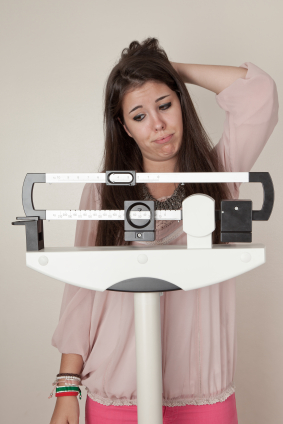 Eating disorders can affect kids of any age, but are more prevalant amongst teenagers. Although they are more common amongst girls they can also affect boys. Dad Info shows you what to watch out for, and where to go for help …
Eating disorders can affect kids of any age, but are more prevalant amongst teenagers. Although they are more common amongst girls they can also affect boys. Dad Info shows you what to watch out for, and where to go for help …
Types of eating disorder
The two most common eating disorders are:
Anorexia Nervosa – a condition that causes a person to worry all the time that they are fat (even if they’re not) and consequently to eat very little.
Bulimia Nervosa – a condition that causes sufferers to worry about their weight. People with Bulimia tend to alternate between not eating and binging (eating large amounts). They will also then attempt to control their weight by using laxatives and vomiting.
Warning signs
No list of things to watch out for can be wholly definitive, and many symptoms of wider problems can also be put down to normal teenage behaviour, especially faddiness about food, mood swings, and so on. However, you know your child better than anyone else, so if your gut tells you something more is going on, trust your instinct. Things to look out for include:
- wearing loose or baggy clothing
- avoiding meal times – claiming to have eaten out earlier
- taking food to their room
- unusual mood swings
- weakness or excessive tiredness
- feeling cold
- losing interest in their social or romantic life
Bear in mind that these signs may indicate other problems perhaps not directly connected to food. Signs that are certainly more specific to eating disorders include:
- sustained weight loss – though this will take place gradually
- a sore throat or dental problems – caused by vomiting
- disappearing to the bathroom straight after meals
- rituals – cutting the food into tiny pieces, moving it around the plate, or refusing to eat certain foods
- food wrappers appearing in unusual places.
- hair loss
- dry or grey skin
How to react
- Stay calm – your first instinct may well be anger that your child could do this to themselves.
- Be gentle – problems with eating may well be a manifestation of deeper concerns, or of a desire to take control, so it’s vital you keep the lines of communication open.
- Let them know how much you care – if they’re struggling with problems of self-worth, they need to know that they are loved and valued.
- Don’t feel guilty – eating disorders are by their very nature secretive, don’t beat yourself up for not spotting the problem straight away.
- Don’t try to push them into eating normally – when they do start to eat normally again, they need to do it for themselves, not for you.
- Keep them informed – if you’re going to contact a GP or local health practice, tell your child and go to see your GP together.
Vathani Navasothy Adv Dip is an Eating Disorder Practitioner. He says:
“Communication is key. So try to use non-judgemental communication to approach the subject, making sure your child already trusts you. Find the right time to approach the subject tentatively and in private, without the interruption of others, so confidentiality can be maintained. This will help her to trust you.
You have to be able to air your concern without judgement, criticism or from the position of power as a dad! Explain and justify your concerns through her behaviour rather than it being an attack!”
Drugs: recognising and dealing with problems
Simple steps
There are simple steps you can take to try and combat an eating disorder, or to lessen the chances of it happening in the first place, such as:
- keeping to regular mealtimes
- avoiding long gaps between meals
- maintaining a balanced diet that features all the food groups
- avoiding disparaging comments about weight – theirs, yours or other peoples
Seeking help
You needn’t try and deal with your child’s eating disorder by yourself, and there is plenty of support on offer to help you both:
- Local GP/Health Centre – your GP will be able to refer you to any therapy available locally. Be prepared to fight, as the availability varies throughout the country, and, while you’re waiting, pursue other types of help.
- School – your child’s school may have links to organisations specialising in the subject, or bodies offering treatment and support.
- Private Clinics.
- Local self-help groups – check in local libraries, community centres and churches for details of organisations dealing with eating disorders.
Author
Steve Cochrane is a freelance journalist and scriptwriter who is married with three children, varying in age from 17 to eight. As well as writing he has worked as a full time househusband, unofficial family childminder and has spent many years trying to come up with a better word for househusband.








